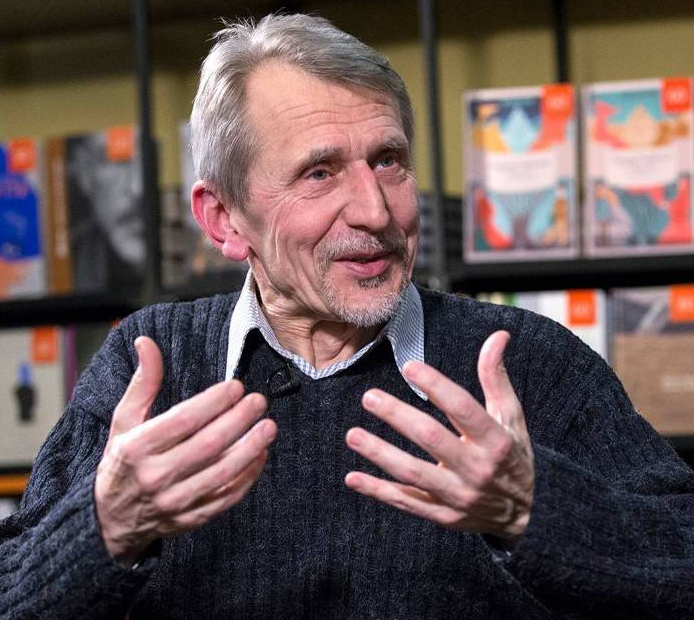The newest measures require all service providers and shops to provide assistance or business transactions in Ukrainian by default, unless another language, acceptable to both sides, is requested by the customer. Importantly, customers who are refused their right to services in Ukrainian can now submit their complaint, and the business will be fined if systematic violations are proven.
Cases where Ukrainians were refused, berated, or even beaten for their request to receive service in Ukrainian were and remain quite common, especially in the eastern regions. This is why the situation needs state intervention.
At the same time, the proposed changes by these new measures were not warmly received by all Ukrainian public leaders; some claim the Ukrainian language primarily needs informal support from the state, as formal norms will have little impact on everyday culture.
Others, on the contrary, cite the first positive examples of how businesses have switched to Ukrainian, complying with the new norms.
Following are the arguments from both perspectives, outlining the consequences of the law implementation as well as a wider picture as to why the Ukrainian language still needs protection after 30 years of independence.
Current situation with Ukrainian: spoken at home but still often unpopular in public
Although the situation has improved since 1991, the majority of Ukrainian cities and business circles are still Russian-language dominated – a factor that contributes to the popular perception of Russian as the “normal” language to speak, even if the majority of Ukrainians, according to sociological surveys, define Ukrainian as their mother tongue (73%) and speak it at home (53%).
The other influential factor is the dominant Russian language on social networks. Firstly, algorithms show predominantly Russian-language posts or videos to Ukrainians who understand both languages, since Russian-language materials have a wider audience and more views globally. Secondly, Ukrainians tend to post more in Russian themselves, considering that such posts will become more popular, as well as sometimes considering Russian more prestigious.
There is no objective sociological research as to how Ukrainians treat Russian and Ukrainian languages (i.e., what language they think is more prestigious, the language of business, the language of culture, the language of political elites, etc.).
In Kyiv, for example, elite business environments are predominantly in Russian, just like the majority of pupils' extra-curricular activities and conversations during breaks, even despite the recent relatively successful Ukrainization of formal education.
Regarding national politicians, only one out of six Ukrainian presidents, as well as only four out of 18 prime ministers, always spoke Ukrainian at home. The majority of them used Ukrainian only while in office, contributing to the perception of Ukrainian as something artificial and just needed formally (in writing, education, etc.).

Most disturbing, however, are frequent cases of chauvinism on the grounds of language.
The most notorious example was the murder of Ukrainian activist Artem Miroshnychenko in Bakhmut for speaking the Ukrainian language (2019).
There are many similar cases:
- Ukrainian soldier Yaryna Chornohuz was expelled from a bus by the driver, silently supported by passengers, for her request to switch off Russian music (2020);
- an elementary school art teacher in Odesa berated a pupil for responding in Ukrainian, rather than Russian, quickly driving her to tears in front of her classmates (2020);
- a group bullied a child and her mother in a Kyiv kindergarten for speaking Ukrainian, saying, “You are likely living in a wrong city, you should go to Lviv”;
- two Ukrainian border guards were heavily beaten in Mariupol after they asked for a menu in Ukrainian (2018);
- in Odesa a taxi driver refused to accept a passenger for speaking Ukrainian (2021).
Clearly, the law obliging service personnel to speak Ukrainian by default and prescribing sanctions is more than needed given these conditions. But will it work?
Informal language discrimination stronger than formal due to history
As Ukrainian essayist, historian, and researcher in the field of law, Mykola Riabchuk claimed, the main problem is the still existing inferiority complex among Ukrainians speaking Ukrainian:
“Ukrainians learned, like dogs from Professor Pavlov’s experiments, that public use of the Ukrainian language is touching a wire that can be electrocuted, so it’s best not to try.”

This self-perception arrives from the 300-year-long colonial past during the Russian empire and the USSR, Riabchuk claims. Although Ukrainians could equally make a career in the USSR or the empire alongside the Russians, they had to switch to Russian and limit their patriotism to local sentiments rather than strive for national, cultural, and political independence.
Therefore, by entering the Soviet or imperial bureaucracy, by the same token Ukrainians were distancing themselves from “Ukrainian locals.”
And vice versa – to continue manifesting one’s Ukrainian identity by language was a reason for bullying, which often started at school.
The best example of this was offered by Ukrainian journalist Myroslava Barchuk during the program Imperatyv at radio UA.cultura. She explained how Ukrainophone pupils in Kyiv schools were discriminated against in the 1970s, recalling her personal experience.
She was born into a family of Ukrainophone Kyiv actors. Formally, pupils could study Ukrainian among other subjects, and the Ukrainian SSR did not ban Ukrainian. However, informally, Ukrainian was considered a peasant language by her schoolmates. Everybody at school spoke Russian and Barchuk had to as well, if she wanted to be accepted by others in the class. She experienced a personal crisis and the feeling of inferiority. Today, she says her Ukrainophone children at Kyiv school still experience a milder version of what she experienced, despite the fact that formal education is now in Ukrainian.
“As a result, a typically colonial situation emerged in Ukraine, in which the natives took on the role of culturally humiliated and economically marginalized inhabitants of the rural ‘third world,’ while the Russians (and later the urbanized Russified part of the natives) played the role of ‘higher’ civilization -- more cultural, more developed. ‘The first world,’” summarizes Riabchuk.
To eradicate this informal legacy and make the Ukrainian language informally prestigious and widely used by the majority -- especially among the most successful people -- is the key to success, although the hardest goal. Yet, one can observe positive trends here, starting from the sphere of culture, music, and literature, moving slowly to the sphere of business. The most recent examples are small entrepreneurs in Odesa, who have started writing web-blogs about their shops in Ukrainian, claiming that “it is fashionable,” even within one of the most Russified Ukrainian cities.

Another Ukrainian intellectual Hennadiy Druzenko, being skeptical about the language law which compulsorily obliges businesses to serve in Ukrainian, at the same time favors other positive examples directed precisely at this informal popularization of the language:
“Activities of the Ukrainian Cultural Foundation, Ukrainian Institute, State support for Ukrainian theater and cinema, renewal and replenishment of the book fund of libraries through the purchase of modern Ukrainian books, State funding of Ukrainian translations, creation of an open online library of audiobooks of Ukrainian classics and world classics in Ukrainian translation, tax benefits for creators and publishers of Ukrainian content are just a few examples of state ‘gingerbread’ that does not restrict [but stimulates] wider use of Ukrainian.”
But the trend is promising
Regardless of what one favors more, formal or informal support for Ukrainian language, indications are that both policies worked well and have already underpinned the status and popularity of Ukrainian.
Among the first huge successes was the 2006 adoption of mandatory dubbing of films into the Ukrainian language for cinemas. The situation changed dramatically, professional dubbing studios of the highest level appeared, and the Ukrainian dubbing market began to grow rapidly. The share of dubbed-into-Ukrainian films rose from 20% in 2006, to 70% in 2009, and 89% in 2019. What was formal at first has now become a normal practice.
Another example is the rebirth of the Ukrainian music and publishing industry after the introduction of language quotas. Following the 2014 Revolution of Dignity, the informal trend toward the popularization of the Ukrainian language was also strong, although it has slowed down since 2019.
- Read also: The rebirth of Ukrainian literature and publishing: famous contemporary authors and new policy for their support
- Explosion of new Ukrainian music after introduction of protectionist language quotas
Current law partially successful, first reactions demonstrate
The first reactions of businesses to the current law demonstrate it may well become another successful step towards the wider presence of Ukrainian in the public sphere. Partial success of the law was demonstrated by initial statistics. Equally inspiring is the number of cafes and restaurants that have decided to switch to Ukrainian.
The statistics were provided by Taras Kremin, Commissioner for the Protection of the State Language. The commissioner's office receives complaints and appeals from citizens which can be submitted online. A total of 195 were sent during the first week of the new measure being enforced. The largest number of appeals came from Kyiv and Kyiv Oblast (74), while the smallest came from the south and east of Ukraine.
Most of the complaints (117) concerned the absence of the Ukrainian version of online web pages and online stores; 34 citizens reported violations of their rights in the service sector; 25 in outdoor advertising; four violations of language legislation in the field of education; and three in the language used by officials of state authorities.
Statistics demonstrate that the law works best in oblasts where there are both many Ukrainophones and Russophones. In such cases, Ukrainophones receive a considerable advantage due to the law, and also try to effectively protect their rights. On the other side, oblasts dominated by Russian language, such as Kharkiv, are likely to receive a minor impact. There are few people who demand service in Ukrainian.
However, the law unexpectedly became a convenient explanation for Ukrainian language choice for entrepreneurs who wanted to operate in Ukrainian in such predominantly Russian language cities like Odesa, but could not find a convenient way to explain so to their customers, especially opponents of Ukrainization. That is why many cafes in Odesa have switched to Ukrainian since 16 January 2021.
This fact was observed by Yaroslava Vitko, a deputy of the Odesa district council and head of the NGO Ukrainian Odesa. She expected that many entrepreneurs would sabotage the language requirement, but after conducting a monitoring inspection, she discovered nobody in the businesses answered her in Russian. According to Vitko, progress in the ethnolinguistic situation began in the last six years of pro-Ukrainian humanitarian policy.

A story from Kyiv -- likely intended as a half-joke -- spontaneously turned into a type of flash mob.

Bogdan Logvynenko, co-founder of the web project Ukrainer – The Expedition (known for publishing stories about unique aspects of Ukraine), offered on his Facebook page to help restaurants with staff who are not accustomed to serving in Ukrainian to learn common phrases and pleasantries, thus helping them adjust to the new law.
If in your cafe / restaurant / dining room / shop the employees feel unconfident, serving visitors in Ukrainian. If one of your employees lacks knowledge and experience. I’m ready to give one day of my life and help any institution in Kyiv with spoken Ukrainian. I will spend this day as an intern waiter / backup manager / barista / salesman or just an assistant... Explain what small talk is and how it affects tip increase.
Logvyneko unexpectedly received about 20 authentic requests for Ukrainian language assistance in cafes. As one server said, he just couldn’t imagine how to use Ukrainian in everyday life, but is now ready to try. Dozens of Logvynenko’s friends have come forward to join his initiative.

